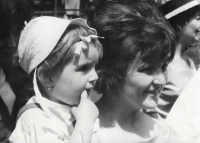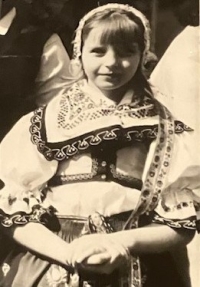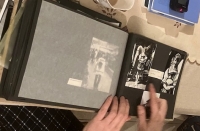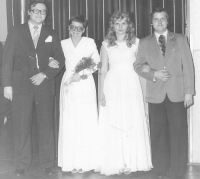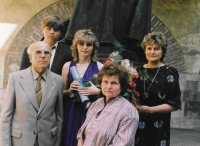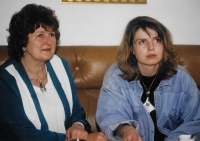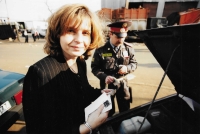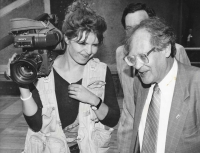The revolution has taken the thorn out of my side

Download image
Petra Procházková was born on 20 October 1964 in Český Brod. She comes from a family of tradesmen. She graduated from the grammar school in Poděbrady and then graduated in journalism at Charles University. After her studies, she started working at the magazine Květy. She was fired from the weekly after an illegal trip to the USA and participation in Palach Week. She spent the year 1989 as a cleaner and a Lidové noviny (People´s Newspaper) vendor. She took part in the student march on 17 November 1989 and was also at the Národní Street. After the revolution, she began working at Lidové noviny and in 1992 became a correspondent in Moscow. She spent almost ten years in Russia, after which she was expelled from the country. From 2001 to 2006 she worked as a foreign correspondent in Afghanistan. There she also met her husband Paikar Paikar, with whom she has a son, Zafar. She worked at Lidové noviny for almost thirty years, and since 2018 she has worked at Deník N.
